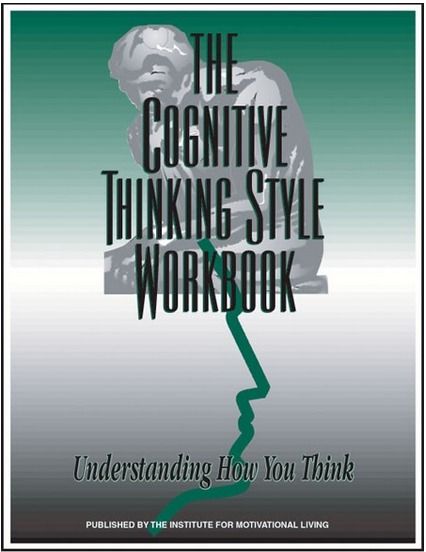
In August I learned that I would have the opportunity to review The Cognitive Thinking Style Workbook by PeopleKeys. I was happy to review this because I knew it would enable me to be more thoughtful about my son's learning, once I understood his learning style.

PeopleKeys is a company that has developed various behavioral assessment tools to help companies, individuals, and students learn and recognize their strengths, weaknesses and styles.
They have materials that can help individuals to:
They have materials that can help individuals to:
- understand natural strengths in critical areas such as communication, learning, thinking, career choices, what motivates them, and helping them set personal goals;
- recognize and improve "soft skills";
- transition from high school to college or career;
- develop good study habits and test-taking skills;
- recognize and develop leadership skills;
- select realistic goals and careers they will find fulfilling; and
- help students learn about diversity.
I was very pleased that I was chosen to review The Cognitive Thinking Style Workbook. I wanted to learn more about my student's brain and how he ticks, and how I can help him to be his best.
After an initial introduction with instructions, my son answered a series of questions, each with a "sliding scale" (answer with a "1", "2", "3" or "4" to determine which description is most/least like you). At the end of the questions, which were in columns, the number columns were added and the column with the highest number indicated his thinking style.
There are four possible thinking styles presented in the workbook: literal, intuitive, theoretical and experiential. I can't give you a full explanation of each thinking style here, but here are a few facets of each type:
There are four possible thinking styles presented in the workbook: literal, intuitive, theoretical and experiential. I can't give you a full explanation of each thinking style here, but here are a few facets of each type:
- Literal thinkers are usually direct and to the point. They also tend to like tangible rewards. They tend to be organized. They are usually hands-on (I'm thinking "tactile learners"). They like things to be practical (and I'm thinking they like to know that there is a reason why they have to learn what you are trying to teach them). I am thinking most don't like to study information that they don't think they will ever need to know.
- Intuitive thinkers tend to pay attention to people's feelings. They like to get people's opinions before making a decision and moving forward. These individuals tend to learn from others in a friendly, cooperative way. They like to use their imagination. They can be spontaneous and unpredictable.
- Theoretical thinkers like to thoroughly analyze a deliberate situations. They tend to be rational and logical. (I'm thinking my husband fits this thinking style.) They can be thorough and methodical, wanting lots of information before making a decision.
- Experiential thinkers tend to believe only what they can experience. (Remember "Doubting Thomas" wanting to touch the wounds in Jesus' side?) The like to know what purpose it will serve before they willingly put forth the effort to learn a new skill. They are usually passionate about their convictions. They tend to be resourceful, courageous and inventive. (Sounds like a good Boy Scout...)
So here I am with Student #3, another literal student. How does knowing this help me? Well, one way that this information helps me is that I want to teach to his strengths. I will be trying to keep his thinking style in mind as I continue to work with him. Things can go more smoothly if I remember what motivates him (he wants to know why this information is useful before he wastes his time; he likes tangible rewards). I will also be working to help him get more organized, now that it is confirmed for me that he will do better with more organization. (I'm struggling to be able to be organized for him, but I'm working on it.)
The Cognitive Thinking Style Workbook contains the following sections:
- What are Cognitive Thinking Styles?;
- What's Your Cognitive Thinking Style? (the "test");
- Scoring and Graphing your Profile;
- Cognitive Thinking Styles at a Glance;
- Style Characteristics at a Glance;
- A two-page for each thinking style which includes general characteristics, where someone with the thinking excels and is limited, and how the individual works in a group and works alone;
- and How You May Improve Learning.
There are more things I will be working on, but I can't give it all away... Basically, this little Workbook is packed full of useful information at a very low price of only $13.00. The material is geared towards high school, college, and adult individuals, but I also found it helpful with my 13-year-old 8th grader. (Anyway, he is right on the fence right now as to whether I graduate him a year early or not, so he was right on target to use this material. I was in 9th grade when I was 13.) This workbook is a paper workbook with stapled binding, and is already 3-hole punched, so you can put it right in your notebook. It has a total of 17 pages. All you need, in addition to the workbook, is a pen and your student. (My workbook survived a spilled glass of water. It dried "wibbly", but it is still functional. Just sayin'...)
PeopleKeys offers a wide variety of materials to assist individuals to be the best that they can be. Members of the Crew had the opportunity to review a variety of materials, including Children's Profile, DISC Career Style Report, Personality Style Report, Perceptual Learning Style Workbook, and StudentKeys Student Binder. To see more reviews of more of these products by other Crew members, click on the PeopleKeys box below:



No comments :
Post a Comment